- Latest articles
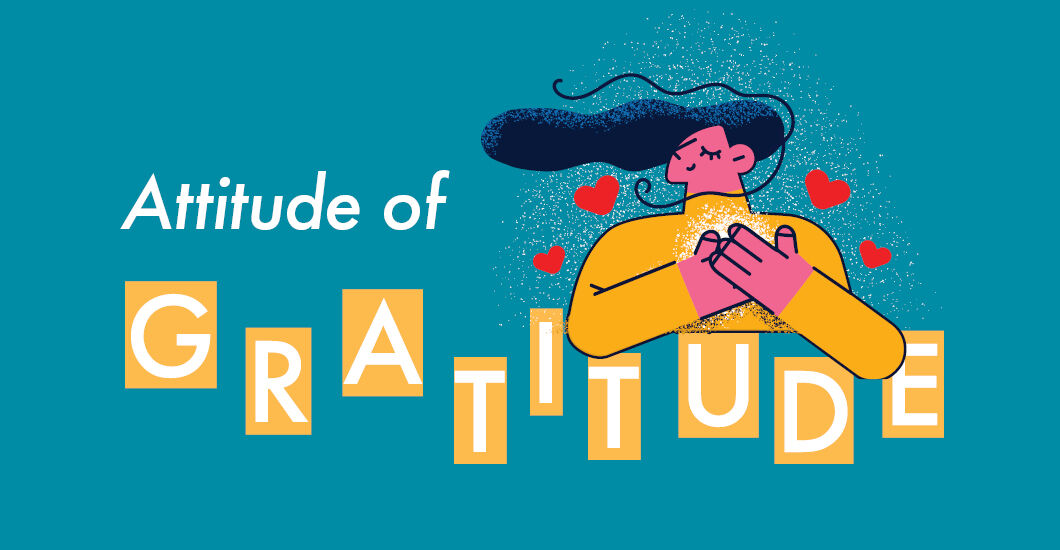
What’s the key to joy in this life? If you realize this, your life will never be the same.
There are a number of things that continue to strike me about the story of Christ’s healing of the ten lepers. As we all know, leprosy was a horrible disease that tore victims away from their families and into isolation. “Have pity on us”, they call to Him. And he does. He gives them their lives back. They can return to their families, work again, and worship; the joy they experienced would be incredible. But only one returns to give thanks.
Behind the Gift
I do not intend to judge the nine who did not return, but the one who returned to Jesus understood something very important about “gifts.” When God gives a gift, when He answers a prayer, for example, and we are given some “thing,” some blessing, etc., always contained in that gift is the Person. It is the giving of the Person that is primary, the essential point of a gift; and the ultimate point in receiving the gift is to receive the Person who gives it. Things eventually break down, disintegrate, rust, etc., but the point in receiving a gift is to receive the person who gave it. This is the case for all gifts, but this is especially the case with God; for He gives us gifts because He wants us to receive Him, who will never break down, disintegrate, rust, or decay. The spoiled child takes the gift but fails to recognize the person in the gift, so he’s ungrateful. The leper who returned clearly understood this; he returned in a spirit of gratitude.
The spirit of gratitude is the root of the religious spirit. Our entire life, every moment of it, is a sheer gift. When we look around and see that our lives are filled with His blessings, what is He saying to each one of us individually? He’s saying: “I love you; love me back.” If we don’t discover the Person within and behind the many gifts that surround us, they are not going to mean much after a while. They will “get old,” and we will continue on with life with a restless spirit, always searching for more.
Locked Doors & Block Walls
One of my first assignments after ordination was the Queen Street Mental Health Center (psychiatric hospital), and it really was a wonderful experience. I also had the opportunity to regularly visit a nearby prison.
At the hospital, every unit is a locked unit. We are given a key to get in, except for one unit in particular. At this unit, patients are a bit more dangerous, so there is no key. Security sees you on camera. They let you in through one door, and once that door closes, the other door is unlocked, and you proceed through. One weekend, I spent a lot of time on that unit, and also on the schizophrenic unit. After two days of being surrounded by locked steel doors, cinder block walls, security guards, and cameras, I was free to leave, and drive home.
On the highway, 20 minutes into my drive, I looked up at the beautiful sky. Suddenly, I was overcome with a deep sense of joy. It was a profoundly euphoric experience to realize I am free. I could take any exit, stop wherever I wanted, go to a drive thru, buy a coffee or a donut, etc., and no one would stop me, no one would follow me or watch me. I could stop at an empty soccer field, just lie down in the middle of it, and look at the beautiful sky for a while. The rich and beautiful experience of being free struck me like it never had before, and it was a profoundly euphoric experience.
I realized that I take many things for granted. I fail to notice my daily blessings.
It’s an interesting expression: “taking for granted.” It means to fail to notice something, to fail to notice that something has been “given,” and when something is given, there’s a giver, a person, doing the giving. The key to joy in this life is coming to the realization that everything is a sheer gift and becoming aware of the Person that is behind and in the gift, namely God Himself.
Not Fully Understanding
The next significant point in the story of the healing of the ten lepers has to do with the manner of their healing. Jesus said to them: “Go and show yourselves to the priests” (who will then certify that they are clean, so they can return home). But the gospel says they were “healed on the way.” In other words, when Jesus told them to go show yourselves to the priests, they had not been healed as of yet. They were healed “on the way.” Imagine the dilemma. “Why should I show myself to the priest, you haven’t done anything yet. I still have leprosy.” They had to trust, they had to act first, obey first, and only after that are they healed.
That’s how things work with God. We only really come to understand the Lord as a result of choosing to live the faith, to follow him first, to obey him in the dark, so to speak. There is no such thing as coming to understand first, and acting on it after we are assured that we have full understanding. Those who insist on that order always fall away, because they are left without understanding.
We know what God said to us, i.e., keep the commandments. At the Last Supper, he said: “Do this in memory of me.” He also told us not to worry about what you are to wear, eat, or drink. “The Lord knows you need them. Seek first the kingdom of God and all these other things will be provided.” (Matthew 6:32-33). If we act first, we will eventually understand; we will be given the light of faith. But most people will not act unless they can be assured there is no risk. Thus, they go through life in the dark, without the joy of really knowing the Lord. Healing follows the decision to act first, even without understanding.
'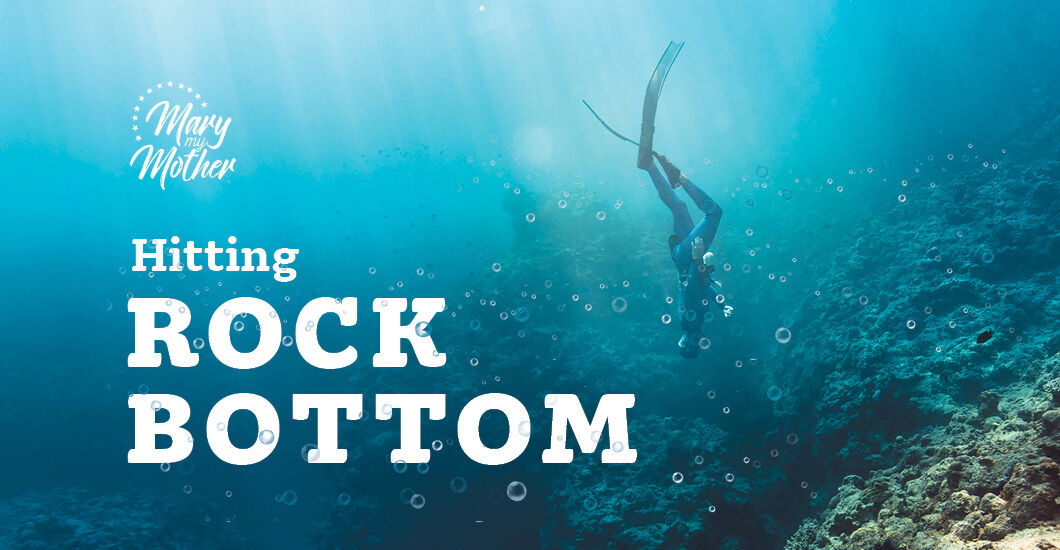
Semi-paralysed after a poisonous spider bite, Marisana Arambasic felt her life ebbing away. She still clung to the Rosary for a miracle.
I’ve been living in Perth, Australia for a very long time, but I am originally from Croatia. When I was 8 years old, I witnessed a miracle. A 44-year-old man with crippled legs was healed through the powerful intercession of Mother Mary. Many of us witnessed this miracle. I still remember running to him and touching his legs in awestruck wonder after he was healed. Despite this experience, I strayed away from God when I grew older. I believed that the world was my oyster. All I cared about was enjoying my life. My mom was worried because I was enjoying life in the wrong way. She offered Masses for me regularly. She asked Mother Mary to intercede on my behalf. Even though my mom prayed fervently for 15 years, I wasn’t any better. When my mom mentioned my case to a local priest, he said, “She lives at the moment in sin. Once she stops sinning, God will bring her to her knees, all the graces through the Holy Mass will be poured out, and miracles will happen.”
The Venomous Bite
This prediction came true when I turned 33 years old. As a single mom, I had hit rock bottom. Gradually, I turned back to God. I felt Mother Mary helping me through the difficult times. One day, a white-tailed spider bit me on the left hand. This is a venomous spider native to Australia. Though I was in good health, my body couldn’t recover from this spider bite. The pain was horrific. The left side of my body was paralyzed. I couldn’t see with my left eye. My chest, my heart, and all my organs felt like they were cramping. I sought help from specialists and took the medicines they prescribed, but I couldn’t recover.
In my time of desperation, I grabbed my Rosary and prayed like never before. At first, I prayed the Rosary every day on my knees. Soon my condition worsened, and I could not kneel anymore. I was bedridden. There were blisters all over my face, and people were reluctant to even look at me. This increased my pain. I started to lose massive amounts of weight. The only thing I could eat were apples. If I ate anything else, my body would go into spasms. I could only sleep for 15-20 minutes at a time before I woke up with cramps. The deterioration of my health was difficult for my son, who was 15 years old at that time. He distanced himself by escaping into video games. Though I was close to my parents and siblings, they all lived overseas. When I told them about my condition, my parents immediately went to Medjugorje, where they met with a priest who prayed for me.
At that exact moment, I was lying on a mattress on my kitchen floor because moving from one room to another was too difficult for me. I was suddenly able to get up and walk, although I still had some pain. I called my sister and came to know that a priest had prayed for the intercession of Mama Mary for my healing. I didn’t stop to think. I immediately bought tickets to go to Medjugorje. I was going against the advice of the medical specialists. My immunity was low, and my body was weak. Yet, I still decided to go.
Up the Hill
When I reached Croatia, my sister picked me up from the airport, and we reached Medjugorje that evening. I met the priest that had prayed with my parents. He prayed over me and asked me to climb up Apparition Hill the next day. During that time, I was still unable to eat anything but apples without my throat closing up. I still had blisters all over me. Yet I couldn’t wait to climb up the hill where Mother Mary had appeared. My sister wanted to come with me, but I wanted to go alone. I didn’t want anyone to witness my sorrow. When I got to the top, it was snowing.
There were not many people there. I had a special moment with Mother Mary. I felt that She could hear my prayers. I asked for a second chance at life and for more time with my son. I prayed, “Jesus, have mercy on me.”
As I came back down the hill, I was praying the Our Father. When I got to ‘give us today our daily bread,’ I felt sad because I could not eat bread. I deeply longed to receive the Eucharist but couldn’t. I prayed that I would be able to eat bread again. That day I decided to try and eat some bread. I had no negative reactions. Then, I slept for two hours straight. The pain and my other symptoms had decreased. It felt like heaven on earth.
The next day I went back and climbed the Jesus Hill, which has a big cross at the top. I felt an overwhelming peace. I asked God to show me my sins from His perspective. As I climbed, God gradually revealed sins that I had forgotten. I was eager to go to confession as soon as I got back down the hill. I was so full of joy. Even though it took a while, I am now completely healed.
Looking back, I realize that all of my sufferings have made me become a better person. I am more compassionate and forgiving now. Suffering can make a person feel lonely and desperate. Everything can fall apart, including your finances and marriage. During these times, you need to have hope. Faith allows you to step into the unknown and walk through unfamiliar paths, bearing your cross until the storm passes.
'
One of the greatest tragedies in the present world is the misconception that science and religion have to be at war…
I have spent the entirety of my primary and secondary school career in public schools where faith and secular culture clash. For years, I heard the declaration reiterated that faith and the real world simply cannot go together. Faith is something for the brainwashed, the daydreamers, and those refusing to see life for what it is. It has become old-fashioned in the eyes of many, something no longer needed now that we have modern science and philosophy to explain it all. This clash was always most visible in my science courses. If not outrightly stated by teachers, it was often pointed out by students that one cannot believe in both God and science. The two are simply mutually exclusive. To me, nothing could be further from the truth. In my eyes, everything in nature serves to prove the existence of God.
God’s Perfect Design
When we look at the natural world, everything is so perfectly engineered. The sun is at the perfect distance to support life on Earth. Organisms dwelling in the ocean with seemingly no purpose actually serve to remove carbon dioxide from our seas and atmosphere to keep the earth livable for other species. The moon’s cycle many miles away in outer space is what causes the tides to change just in front of us. Even seemingly random events in nature aren’t so random when we take a closer look.
During my junior year of high school, I took a course in environmental science. In my favorite unit, we learned about the cycles of nature. The nitrogen cycle particularly impressed me. Nitrogen is a crucial nutrient for plants to grow, yet nitrogen, in its atmospheric form, is not usable for that purpose. For nitrogen to transform into usable form from the atmosphere, bacteria in the soil or a bolt of lightning are needed. A mere bolt of lightning, something which seems so random and unimportant, serves a far greater purpose!
All of nature is interwoven perfectly, just like God’s plan for our lives. Even the smallest thing has a chain of causes and effects, all serving an ultimate purpose that would alter the fate of the world if it was missing. Without the moon, the countless animals and plants which depend on the ebb and flow of tides for food would die. Without those “random” bolts of lightning, our plants would struggle to grow as the fertility of the soil declines.
Likewise, every incident in our lives, however confusing or insignificant it may seem, is foreseen and incorporated into God’s perfectly engineered plan for us when we align our wills to His. If everything in nature has a purpose, everything in our lives must also have greater meaning.
Creator in the Creation
I have always heard that we find God in three things: Truth, Beauty, and Goodness.
A logical analysis of the function of nature can serve as evidence of Truth and how God embodies that Truth. But God is not only the emblem of Truth but the very essence of Beauty. Nature, likewise, is not only a system of cycles and cells but a thing of great beauty as well, another representation of the many facets of God.
One of my favorite places to pray has always been on my surfboard in the middle of the ocean. Looking around at the beauty of God’s Creation brings me much closer to the creator. Feeling the power of the waves and recognizing my littleness amongst the vast sea always serves to remind me of God’s immense power. Water is everywhere and present in everything; it’s within us, within the sea, within the sky, and within the plants and animals in nature.
Even as it changes forms—solid, liquid, gas—it remains water. This reminds us that God is present as the Father, the Son, and the Holy Spirit. All living things rely on water to sustain them. Not only do we need water, but our bodies also consist of a large percentage of water. God, too, is omnipresent; He is the source of all life and the key to sustaining life. He is within us and is present in everything around us.
When I look at the world, I see its Creator. I feel the Lord’s heartbeat as I lie in the warm sun amidst the soft grass and flowers. I see how perfectly He painted the wildflowers, with colors as vivid as an artist’s palette, knowing that they would bring me joy. The beauty of the natural world is immeasurable. Human beings are drawn to the beauty and have sought to create it themselves through art and music. We are made in the image and likeness of God, and His love of Beauty couldn’t be more evident. We see it everywhere around us. For example, we see God’s Art in the intricate design of an autumn leaf, and His music in the sound of the crashing waves and the birds singing each morning.
Endless Mysteries
The world may try to tell us that following God, attending to the ancient wisdom of the Bible, or focusing on faith is an ignorant rejection of the Truth. Science is the truth, we are told, and religion is not. Yet what many fail to see is that Jesus came as the very embodiment of Truth. God and science are not mutually exclusive; rather, a perfect creation is only more evidence that there must be a perfect Creator. Both religious tradition and scientific discovery can be true and good. Faith is not becoming obsolete in our modern times; our scientific advancements only present more beautiful perspectives on the endless mysteries of our Lord.
'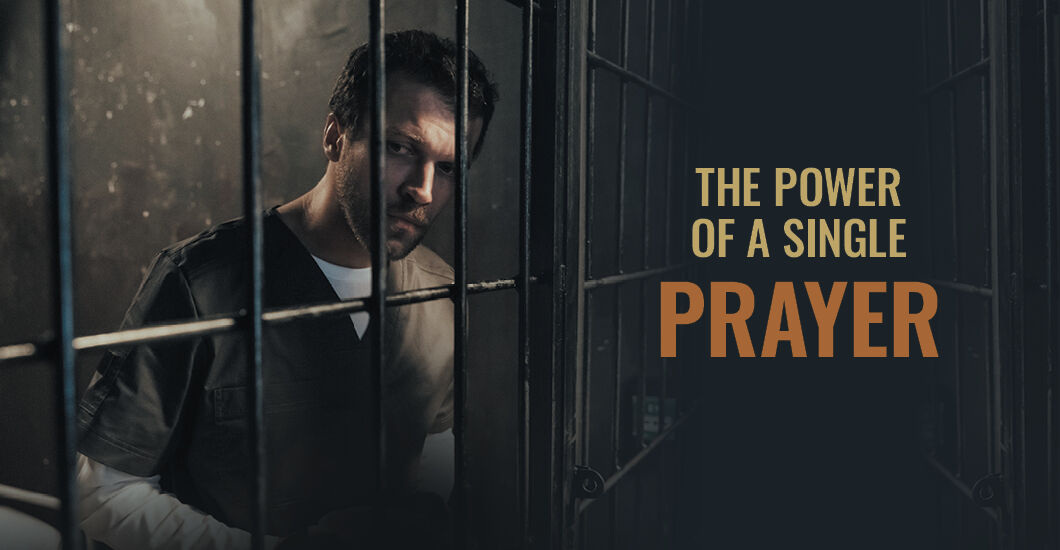
It is possible to visit any and all of the ten million people incarcerated around the world at any given time. Wondering how? Read on
“When I was in prison, you visited me.” These are some of the people Jesus promised to reward on Judgment Day. There are regulations limiting visits to prisoners, but are there ways that someone could visit any and all of the ten million people incarcerated around the world? YES!
Firstly by praying regularly for all prisoners, mentioning any that you know personally by name. This can be accompanied by lighting a candle to symbolize the prayer going up to God and bringing light into the darkness of a prisoner’s life. When I was incarcerated, my family and friends lit candles as a living flame of offering to Almighty God, specifically for me. I found it very effective. It was amazing how a ray of joy would suddenly radiate through the gloom that is normal prison life. Something small but so meaningful that I would forget for a moment just where I was and under what circumstances, prompting me to think, ‘there is a God after all’, even in here.
But I believe the most powerful way to help those in prison, or anyone in great need of prayer, is to consider the holy precious wounds Our Lord suffered during His Passion from His arrest on Holy Thursday night until His death on Good Friday afternoon.
Unfailing Promise
Contemplate all the blows and assaults upon His body, including the cruel scourging and the constant pain of the wounds of the crown of thorns, but particularly those five most precious wounds on His hands, feet, and side.
Saint Faustina tells us how much it pleases Jesus when we contemplate His wounds, and how He promises to pour out an ocean of mercy when we do so. Take advantage of this merciful, generous offer that He reserved for this age. Pray for grace and mercy for yourselves, for those you know by name, and for all the 10 million incarcerated, languishing in prison for all sorts of reasons, just and unjust. He wants to save every single soul, calling each one back to Him to receive His mercy and forgiveness.
Pray also for the downtrodden, the marginalized, the poor, the sick and bedridden, and the silent sufferers who have no one to speak up for them. Pray for all those who hunger—for food, knowledge, or a chance to use their God-given talents. Pray for the unborn and the godless. We are all prisoners of one sort or another, but particularly, we are prisoners of sin in all its insidious forms.
He asks us to come to the foot of the Cross, which is soaked by His Precious Blood, lay out our petitions before Him, and whatever the intention may be, He will respond in mercy.
Let us not miss any opportunity to beg for the incalculable treasures which our merciful Lord has promised us. When we pray for those 10 million prisoners across the world, every one of them receives 100 percent of the benefit of our prayer because, just as Our good Lord gives Himself entirely to each one of us in the Eucharist, He multiplies our single prayer like a megaphone, reaching into the hearts of each of them.
Don’t ever think, “what will my single prayer do for so many people?” Remember the miracle of the loaves and fishes and doubt no more.
'
I was at St. Joseph Abbey in Covington, LA, not far from New Orleans. I was there to address about thirty Benedictine abbots from around the country who had gathered for some days of reflection and retreat. Covering the walls of the abbey church and the refectory of the St. Joseph monastery are marvelous paintings executed by Fr. Gregory de Wit, a monk of Mont César in Belgium, who worked for many years in our country at both St. Meinrad in Indiana and at St. Joseph’s before he passed away in 1978. I have long admired his very distinctive, quirky, and theologically informed art. In the apse of the abbey church, de Wit depicted a series of magnificent winged angels who hover over images of the seven deadly sins, conveying the profound truth that the right worship of God overcomes our spiritual dysfunction. But a novelty of de Wit’s painted program is that he added an eighth deadly sin that he felt was particularly destructive within a monastery—namely, gossiping.
He was right about monasteries, of course, but I would say he would have been right about pretty much any type of human community: family, school, workplace, parish, etc. Gossip is poison. Period. De Wit’s painting prophetically anticipated the magisterium of our present pope, who has often made gossip the object of particular opprobrium. Listen to this from a recent discourse of Francis: “Please, brothers and sisters, let’s try not to gossip. Gossip is a plague worse than COVID. Worse! Let’s make a big effort. No gossiping!” And lest we somehow missed the point, he continued, “The Devil is the biggest gossiper.” This last remark is not just colorful rhetoric, for the pope well knows that the devil’s two principal names in the New Testament are diabolos (the scatterer) and Satanas (the accuser). I cannot think of a better characterization of what gossip does and what it essentially is.
Not long ago, a friend sent me a YouTube video of a talk by Dave Ramsey, a business and finance consultant. With the vehemence of Pope Francis, Ramsey spoke out against gossip in the workplace, specifying that he has a no tolerance policy in regard to the practice. Helpfully, he defined gossip as follows: discussing anything negative with someone who can’t solve the problem. To make things a bit more concrete, a person in your organization would be gossiping if he were grousing about IT issues with a colleague who had no competence or authority to resolve IT matters. Or someone would be gossiping if she expressed anger at her boss to people down the chain of command who were in absolutely no position to respond constructively to her criticism. Ramsey provides a pointed example from his own experience. He recounts that he had a meeting with his entire administrative team, outlining a new approach that he wanted them to adopt. He left the gathering, but then realized he had forgotten his keys and so made his way back to the room. There he discovered that “a meeting after the meeting” was taking place, led by one of his staffers who, with her back to door, was loudly and vociferously denouncing the boss to the others. Without hesitation, Ramsey summoned the woman to his office and, in accord with his zero-tolerance for gossiping policy, fired her.
Mind you, none of this is to say that problems never arise within human societies, still less that complaints should never be voiced. But it is indeed to say that they should be expressed nonbelligerently and up the chain of command, precisely to those who can deal constructively with them. If that method is followed, gossip is not in play. I might supplement Ramsey’s insight with one from John Shea, a former teacher of mine. Years ago, Shea told us that we should feel utterly free to criticize another person precisely in the measure and to the degree that we are willing to help the person deal with the problem that we’ve identified. If we are utterly committed to help, we should criticize as vigorously as we like. If we have a moderate willingness to help, our critique should be mitigated. If, as is typically the case, we haven’t the slightest inclination to help, we should keep our mouths shut.
To direct a complaint nonbelligerently up the chain of command is to be helpful; to direct it down the chain of command and in meanness of spirit is to gossip—and that’s the devil’s work.
Might I make a friendly suggestion? We are on the cusp of Lent, the Church’s great season of penitence and self-discipline. Instead of giving up desserts or smoking this Lent, give up gossiping. For forty days, try not to comment negatively to those who have no ability to deal with the problem. And if you feel tempted to break this resolution, think of de Wit’s angels hovering over you. Trust me, you and everyone around you will be a lot happier.
'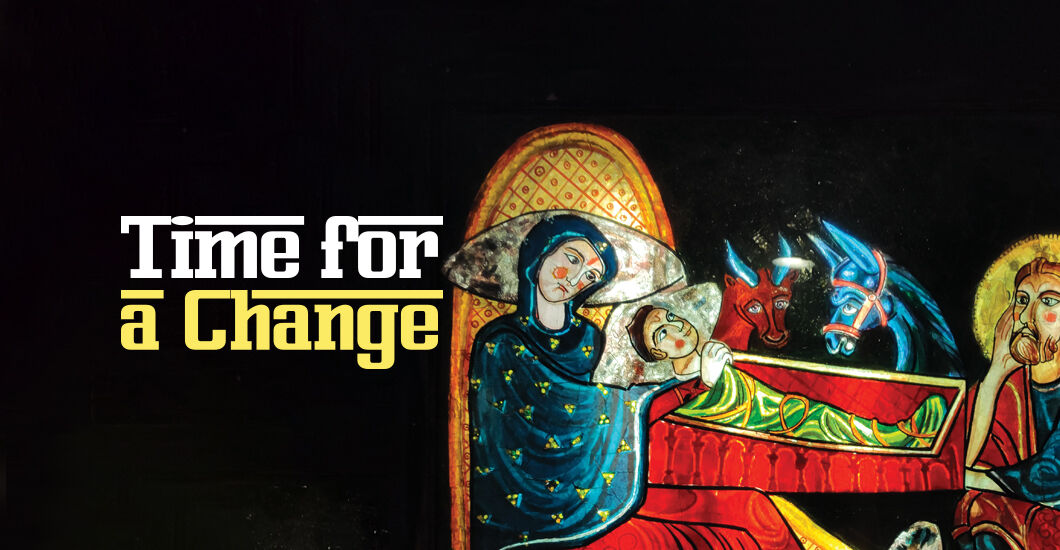
Practice this and you will never regret…
One antiphon struck me in the final days of last Advent: “Let us see His Face and we shall be saved.” Yes, I prayed, Jesus, let me see Your Face. I think of Mary and Joseph looking at Your Face for the first time as they gently hold You and kiss that Face, and lay You on the straw covered with a warming blanket. How beautiful You are, even before Your eyes open and You look back at me.
Rekindle Your Love
Around this time, I read from a book by Sister Immaculata, a Carmelite nun, (The Pathways of Prayer: COMMUNION WITH GOD published by Mount Carmel Hermitage, 1981) something that also touched my heart. She spoke of how we can keep our love for You, Jesus, which we profess in our formal times of prayer and at Eucharist as we receive You into our bodies and souls. I eagerly read about this, as I had been struggling with feeling led to get one more thing to eat or drink in the nearby kitchen. As I sat there in my prayer corner, I realized the truth of a saying someone posted on her refrigerator: “What you are looking for isn’t in here.” Yes, I could turn to You instead of going to my fridge, couldn’t I? So I wanted to read what Sister Immaculata had to say about rekindling my Love.
She affirmed: “Constant conversing with God in His living presence is the generator of the soul. It keeps the heat and blood flowing…There must be a great fidelity to the practice of this loving recollection with God in faith.” She showed how “there must be special care that this interior glance at God, however brief, precede and conclude every exterior action.” She began to share how the great mystic, Saint Teresa of Avila, spoke of this with her nuns:
“If she can, let her practice recollection many times daily.” Saint Teresa understood that it would not be easy at first, but that “if you practice it for a year, or perhaps for only six months, you will be successful in attaining it”—so great a benefit and treasure. The Saints “teach us that this constant communion is a most efficacious means of arriving quickly at a high degree of holiness. These loving acts dispose the soul for an awareness of the touch of the Holy Spirit and prepare it for that loving infusion of God into the soul which we call contemplation…that enables us to fulfill our Christian obligation to pray everywhere and always.”
Into the Habit Loop
These are a few ways that I have been incorporating this practice. When going up and down stairs, or even when walking on certain paths, I say in rhythm with my steps: “Jesus, Mary, and Joseph, I love You. Save souls.” When sitting for a meal, I ask Jesus to sit with me. When finishing my eating, I thank Him. The hardest practice was to pray before taking any snack or bite when not at a meal, or when preparing for one; I undertook this for Lent, and finally am forming a new habit.
When I pass a Church or Chapel, I say some variation of “Jesus, thank You for Your presence in Eucharist. Please bless all from this holy place.” When passing up a sweet during Lent or on Fridays, I pray for someone or some country in great need.
Sister Immaculata assures us: “God will reveal Himself. He is thirsting to do so, but He cannot unless the heart and mind are prepared to receive Him. Our life of prayer does not really begin until we have laid the foundations of a pure conscience, detachment, and the practice of remaining in His presence.”
“True freedom is the freedom from selfishness. The habit of constant recollection and continual prayer in the presence of God is the remedy for that fear of dying to self and selfishness which is so ingrained in us…Prayer and self-denial are so inseparably linked… because the love of Jesus makes a person despise himself.” This chapter ends with a quote from the Imitation of Christ: “Be humble and peaceful and Jesus will be with you. Be devout and quiet and Jesus will stay with you…You must be naked and carry a pure heart to God, if you will attend at leisure and see how sweet the Lord is” (Book II, chapter 8).
As I focus on areas where I am indulging without first praying, I feel inspired to find a prayer to draw me closer to the Lord whom I love, serve, and pray to already for hours each day. Jesus, yes, please help me grow in the practice of living in Your presence, seeking to see Your Face more and more”.
'
Q – I am always overwhelmed with anxiety—about my family, my health, my financial situation, my job. I even feel anxious about whether or not I am saved. How can I find peace of heart among so many fears?
A – It is significant that the phrase “Be not afraid” occurs 365 times in the Bible—one for each day of the year! God knew that we would need daily reminders that He is in charge and that we can lay our fears upon Him!
It can be hard to believe that every circumstance of our lives is already in the hands of an all-loving God. But when we look at God’s faithfulness and not our problems, suddenly, we realize how he can bring good out of everything.
For example, read the Scriptures and see how God was faithful to the great heroes of the Bible! In the Old Testament, Joseph was sold into slavery in Egypt and then thrown into prison. But God turned this tragedy into an opportunity first for Joseph to rise in the government of Egypt and then for him to save his family when famine struck the land. Or, in the New Testament, Paul was imprisoned, and his life was threatened several times, but each time, God rescued him from his enemies.
Look at the lives of the saints – did God ever abandon them? Think of St. John Bosco – many people sought the life of this holy priest, but each time God miraculously provided a special guardian—a big gray dog that would appear on the scene to protect him! Think of St. Francis, who was captured in battle and imprisoned for a year – and that year became his conversion experience. Think of Bl. Carlo Acutis, the young teen who died of leukemia in 2006 at age 15 and how God has brought great good from that early death, as millions have been inspired to holiness by his story and example.
I can tell you that my most difficult moment – when I was kicked out of school and told to abandon my plans for the priesthood – ended up being one of the most graced and blessed experiences of my life, as it opened the door to priesthood in another, better diocese where I can use my gifts and talents for His glory. It was only with hindsight that I recognized God’s intervention in my life. But the ways God has kept me safe and brought me closer to him in the past gives me confidence that he who was faithful then will be faithful in the future. And now, turn to your own life. How have you seen God come through for you?
Focus on the promises God made in Scripture. He never promised us an easy life – he promised he would never abandon us. He promised that “no eye can see and no ear can hear what God has prepared for those who love Him.” He never promised that life would always go smoothly, but he promised that “all things work for good for those who love God” (Romans 8:28) These are promises we can build our lives upon!
Finally, pray the Litany of Trust. The Sisters of Life in New York wrote this beautiful litany which invites us to surrender our anxieties to God. It says, in part:
From anxiety about the future, deliver me, Jesus.
From the restless self-seeking in the present moment, deliver me, Jesus.
From disbelief in Your love and Your presence, deliver me, Jesus.
Pray continually the brief prayer: Jesus, I trust in You! And He can fill your heart with a peace that surpasses all understanding.
'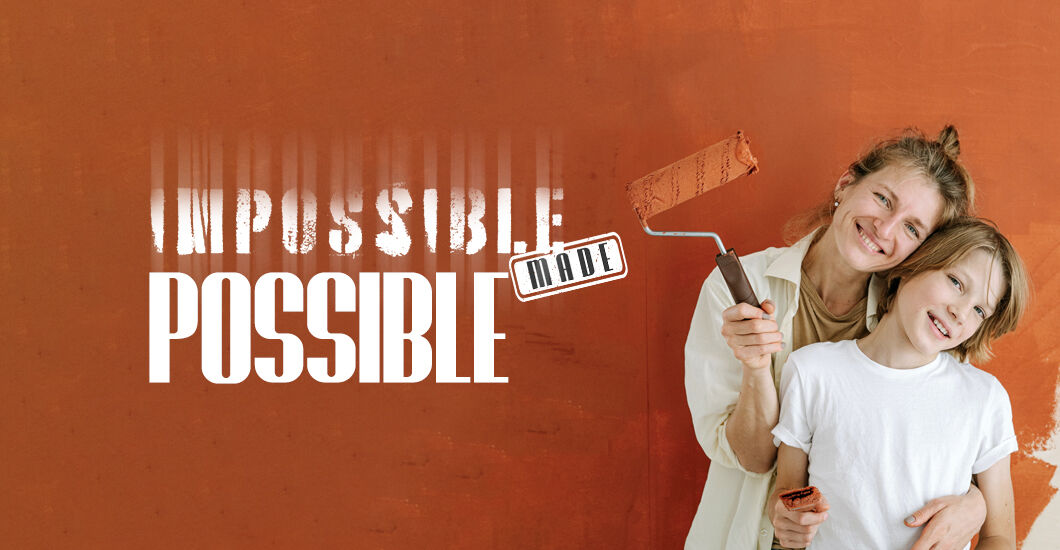
Does your struggles seem endless? When desperation clutches your heart, what do you do?
I was sitting in an over-sized chair wringing my hands and waiting for the Psychologist to enter the room. I wanted to get up and run. The Psychologist greeted me, asked a few basic questions, and then the counseling session began. He held a tablet and pen. Every time I said something or made a hand gesture, he jotted notes on the tablet. After a short time, I knew from the bottom of my heart that he would determine I was beyond help.
The session ended with the suggestion that I take tranquilizers to help me cope with the mess of my life. I told him I would think about it; but instinctively I knew that was not a solution.
Desperate and Lonely
At the receptionist desk to schedule another appointment, I rambled on and on to the receptionist about the mess of my life. She had a kind listening ear and asked if I had ever considered going to an Al-Anon meeting. She explained that Al-Anon was for family members whose lives are being affected by someone’s alcoholism. She handed me a name and phone number and told me that this Al-Anon lady would bring me to a meeting.
In my car, with tears rolling down my cheeks, I stared at the name and phone number. Having gotten no relief from the psychologist, and with my life in a mess, I was desperate to try anything. I also concluded that the psychologist had already diagnosed me as beyond the help of anything but pills. So, I called the Al-Anon lady. That is the moment God entered the mess of my life, and my journey of recovery began.
I would like to say it was smooth sailing after beginning recovery in the Al-Anon 12-step program, but there were steep mountains and dark, lonely valleys to traverse, though always with a ray of hope.
I faithfully attended two Al-Anon meetings per week. The Al-Anon 12-step program became my lifeline. I opened up to the other members. Little by little, a ray of sunshine entered my life. I began to pray again and to trust in God.
After two years of Al-Anon meetings, I knew I needed additional professional help. A kind Al-Anon friend encouraged me to enter a 30-day inpatient treatment program.
Letting go
Because I was angry at alcohol, I did not want to be around any of the “drunks” in this treatment program. During the intensive program, I was indeed surrounded by many alcoholics and drug addicts. It seems God knew what I needed to heal: my heart began to soften as I witnessed the personal pain of my fellow addicts and the deep pain they had caused their families.
It was during this time of surrender that I also came to terms with my own alcoholism. I learned that I drank to cover my pain. I came to realize that I too had been abusing alcohol and that it would be best if I refrained from drinking altogether. During that month I let go of my anger towards my husband and placed him in God’s hands. After I did that, I was able to forgive him.
After my 30-day program, by the grace of God, my husband entered a treatment program for his alcoholism. Life was getting better for me and my husband and our two teenage boys. We had returned to the Catholic Church and our marriage was healing one day at a time.
Heart-wrenching Pain
Then life handed us an unimaginable blow that shattered our hearts into a million pieces. Our seventeen-year-old son and his friend were killed in a devastating car wreck. The accident was caused by excessive speed and drinking. We were in shock for weeks. With our son violently ripped from us, our family of four was suddenly reduced to three. My husband and I and our 15-year-old son clung to each other, to our friends and our faith. Taking it one day at a time was more than I could manage; I had to take it a minute, an hour at a time. I thought the pain would never leave us.
By God’s grace, we entered an extended period of counseling. The kind and caring counselor, knowing that each family member deals with the death of a loved one in their own way and in their own time, worked with each of us individually to process our grief.
Months after my son’s death, I was still consumed with anger and rage. It was frightening for me to realize that my emotions were so wildly out of control. I wasn’t angry at God for taking my son, but at my son for his irresponsible decision the night he died. He chose to drink alcohol and to be a passenger in an automobile that was driven by someone who was also drinking. I became enraged at alcohol in any form.
One day at our local supermarket, I spotted a beer display at the end of an aisle. Each time I passed the display, I felt myself rage. I wanted to demolish the display until there was nothing left of it. I rushed out of the store before my anger exploded into uncontrollable rage.
I shared the story with our family counselor. He offered to take me to the shooting range where I could use his rifle to aim, shoot, and demolish as many empty beer cans as I needed to safely release the powerful anger that controlled me.
Love that heals
But God in His infinite wisdom had other gentler plans for me. I took a week off from work and attended a spiritual retreat. On the second day of the retreat, I participated in an inner healing meditation in which I pictured Jesus, my son, and I in a beautiful garden surrounded by colorful flowers, rich green grass, and magnificent trees filled with softly chirping blue birds. It was peaceful and serene. I was overjoyed to be in the presence of Jesus and to be able to hug my precious son. Jesus, my son, and I strolled leisurely hand in hand, silently feeling an immense love flowing between us.
After the meditation, I felt profound peace. It wasn’t until after I returned home from the retreat that I realized my anger and rage had evaporated. Jesus had healed me of my uncontrollable anger and replaced it with an outpouring of His grace. Instead of anger, I felt only love for my precious son. I was grateful for the love, joy, and happiness my son had given me throughout his much too short life. My heavy burden was becoming lighter.
When tragic death strikes a family, every member can be overcome with grief. Processing the loss is challenging, requiring us walk through dark valleys. But God’s love and His amazing grace can bring rays of sunshine and hope back into our lives. Grief, saturated by God’s love changes us from the inside out, transforming us little by little into people of love and compassion.
Unfailing Hope
Through many years of dealing with the effects of addiction and the craziness that brings, coupled with grieving the death my son, I have clung to Jesus Christ, my rock, and my salvation.
Our marriage suffered tremendously after the death of our son. But by the grace of God and our willingness to seek help, we continue, one day at a time, to love and accept each other. It takes daily surrender, trust, acceptance, prayer and clinging to the hope we have in Jesus Christ, our Savior, and our Lord.
We each have a story to tell. Often it is a story of heartache, challenge, and sorrow, with a mix of joy, and hope. We are all seeking God, whether we acknowledge it or not. As Saint Augustine said: “You have made us for Yourself, O Lord, and our heart is restless until it rests in you.”
In our search for God many of us have taken detours that led to dark and lonely places. Some of us have avoided the detours and sought a deeper relationship with Jesus. But no matter what you are going through currently in your life, there is hope and healing. At every moment God is seeking us. All we need do is reach out our hand and let Him take it and lead us.
“When you pass through waters, I will be with you; through rivers, you shall not be swept away. When you walk through fire, you shall not be burned, nor will flames consume you. I, the Lord, am your God, the Holy One of Israel, your savior.” Isaiah 43: 2-3
'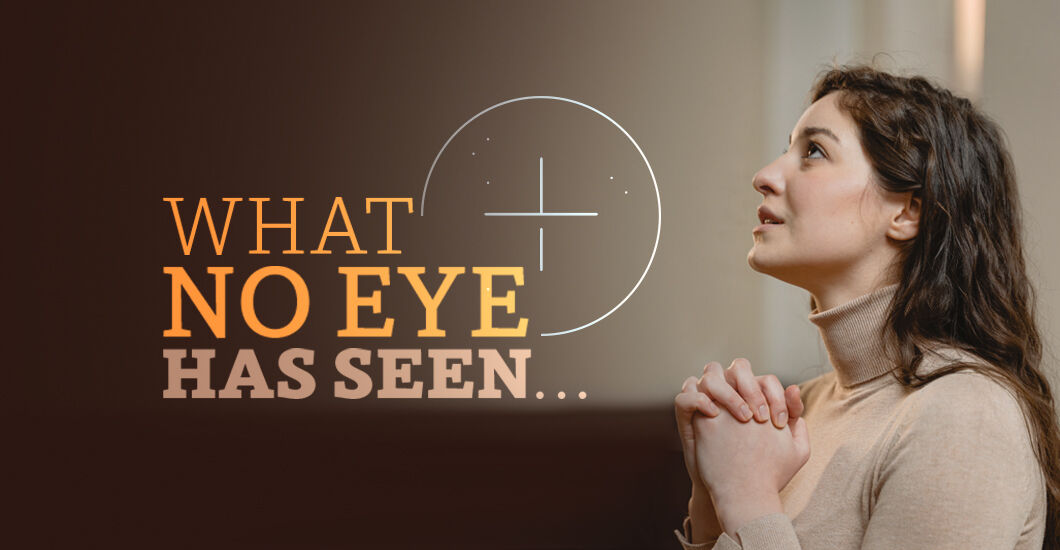
“And the Word became flesh and lived among us, and we have seen His glory, the glory as of a father’s only son, full of grace and truth.” (John 1:14)
The first time I noticed Anne was in church during Holy Mass. On weekdays, I attend Mass in a small chapel with only two rows of seats. You see the same few people every day, so you become familiar with everyone. Anne seemed to occasionally have tremors. At first, I assumed she had Parkinson’s disease. However, after closer observation, I noticed she only had this issue when receiving Holy Communion. Her body, especially her hands, would shake as she accepted the host from the priest. The trembling would continue for a few minutes.
One day, I decided to ask Anne about her reaction during Communion. Anne graciously explained this unusual gift. Her tremors were not related to any sort of medical condition, although many people assumed that was the case. She was slightly embarrassed by her body’s reaction, because it brought unwanted attention to her. This phenomenon started several years ago when she suddenly recognized the magnitude of what it meant to receive the body of Christ. Jesus, the Son of God, had become a human being for our sake. Full of grace and truth, He lived among us. He died sacrificially for our sins. After this moment of awareness, Anne says her body involuntarily trembles every time she accepts Communion. Anne’s reverence for the Eucharist gave me a new appreciation for this Sacrament.
Saint Augustine described a Sacrament as an ‘outward and visible sign of an inward and invisible grace’. How often do we recognize the signs of grace? When we reduce the sacraments to mere rituals, we miss out on the awareness of God’s loving presence. Sacred realities can only be appreciated by those who are attentive.
Lord Jesus, I pray that You would give me a deep reverence for all that is sacred. Let me embody Christ in all that I am and all that I do. Mold me into a living sacrament–an outward and visible sign of your inward and invisible grace. Amen.
'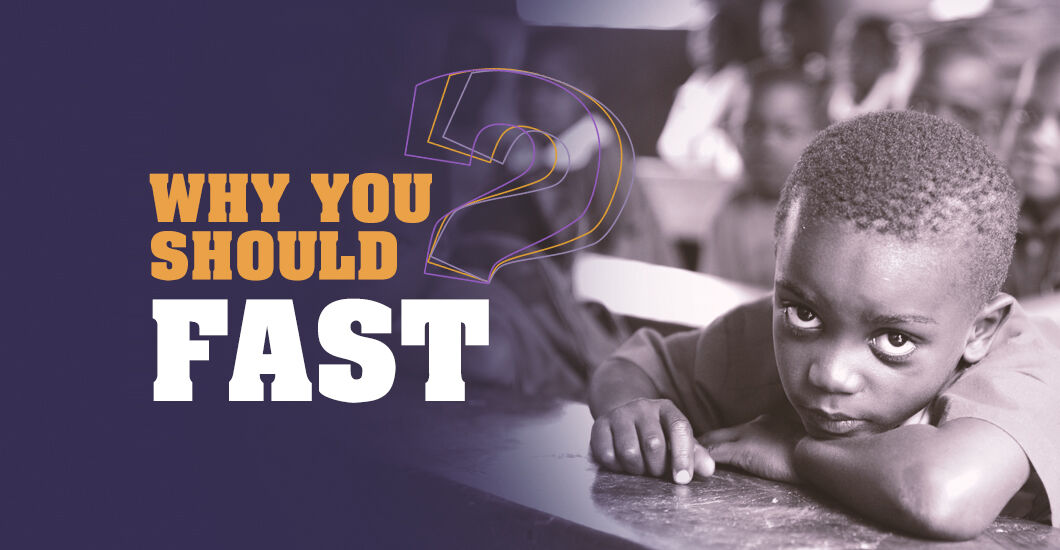
Wanna experience a breakthrough in life? Here’s what you are looking for!
It certainly doesn’t take a rocket scientist to know, that prayer is central to the life of every Christian. The importance of the call to fasting is less spoken about, so it may be unknown or unfamiliar. Many Catholics may believe they are doing their part by abstaining from meat on Ash Wednesday and Good Friday, but when we look at the Scriptures, we may be surprised to learn that we are called to more. Jesus was asked why His disciples did not fast, when the Pharisees and John the Baptist’s disciples did. Jesus responded by saying that when He was taken away from them, ‘they will fast in those days’ (Luke 5:35).
My introduction to fasting came in a powerful way around 7 years ago, as I lay on my bed reading an article online, about starving children in Madagascar. I read how a desperate mother described the harrowing situation; she and her children were in. They woke up in the mornings hungry. The children went to school hungry and so they were unable to concentrate on what they were learning.
They came home from school hungry, and went to bed hungry. The situation was that bad that they began to eat grass to trick their minds into thinking they were consuming something sustaining, to take away their thoughts of hunger. I learnt that the first few years of a child’s life are crucial. The nourishment they receive or don’t receive, can impact the rest of their lives. The part that truly broke my heart was a photograph of the backs of three young children in Madagascar, with no clothes on, clearly and visibly showing the extreme lack of nourishment. Every single bone in their body seemed to be visible. This had a profound impact on my heart.
‘What can I do?’
After reading this article, I went downstairs, in a bit of a daze with such a heavy heart and my eyes full of tears. I took the breakfast cereal out of the cupboard, and as I went to the refrigerator to take out the milk, I noticed a fridge magnet of Saint Teresa of Calcutta. I held the milk in my hand, and as I shut the door, I stared again at the picture of Mother Teresa, and said in my heart ‘Mother Teresa, you came to help the poor in this world. What can I do to help them?’ I felt in my heart an immediate, gentle and clear answer; ‘Fast!’. I put the milk straight back in the fridge, and the cereals back in the cupboard, and felt such a joy and peace in receiving such clear direction. I then made a promise, that if I thought about food that day, if I got hungry, smelt food, or even saw it, I would offer that small self-denial for those poor children and their parents, and all starving and hungry people across the world.
It was an honour to be called into God’s divine intervention in such a simple but obviously powerful way. I did not think about food or even feel any hunger that day until later that night, when I attended Holy Mass. Moments before receiving Holy Communion, my stomach rumbled and I felt so hungry. As I knelt back down after receiving the Eucharist, I felt like I had just finished the best meal of my life. I certainly had; I had received the ‘Bread of Life’ (John 6:27-71). The Eucharist not only unites each one of us to Jesus personally, but also in turn to each other, and in a powerful way ‘commits us to the poor’ (CCC 1397). Saint Augustine describes the greatness of this mystery as a ‘sign of unity’ and ‘bond of charity’ (CCC 1398). Saint Paul helps us to understand this by further explaining, ‘Because there is one bread, we who are many are one body, for we all partake of the one bread’ (1 Corinthians 10:17). Therefore being ‘one body in Christ’ makes us ‘individually members of one another’ (Romans 12:5).
One Direction
I began to pray each week, asking the Lord who He wanted me to fast and pray for. Before I began to fast, I would somehow come across somebody; a homeless person, a prostitute, an ex-prisoner etc. I felt truly guided. One particular week, however, I went to bed unsure of what intention the Lord wanted me to fast and pray for. As I went to sleep that night, I prayed, asking for direction. The following morning as I finished my morning prayer, I noticed I had a text message on my mobile phone. My sister had texted me the tragic news that a friend of hers had committed suicide. I had my answer. I then began to fast and pray for this girl’s soul. Also, for the people who had found her, her family, and all suicide victims, and anybody who currently may had been contemplating taking their own lives. When I came home from work that day, I prayed my daily Rosary. As I prayed the last prayer, on the very last bead, I felt clearly in my heart the words, ‘When you fast’ (Matthew 6:16-18). As I pondered these words, the emphasis was clearly on ‘When’, not ‘If’. As much as we are expected to pray as believers, the same is clearly true for fasting, ‘When you fast’. As I finished the Rosary and stood up, my phone immediately rang. A beautiful elderly lady I know from church rang me, in a desperate state and told me some of the things that were going on in her life. She told me she was thinking of committing suicide. I knelt down and we prayed together on the phone and by the grace of God she felt peace by the end of the prayer and conversation. The power of prayer and fasting! Glory to God.
Fly and Fight back
I have had the great blessing of visiting the Marian pilgrimage site of Medjugorje, a number of times in my life and have grown deeper in appreciation of this most beautiful weapon against evil. There the Blessed Virgin has continued to call Her children to penance and fasting, often requesting that they take only bread and water on Wednesdays and Fridays. It was once said by a late Medjugorje priest, Father Slavko that ‘Prayer and fasting are like two wings’. We surely can’t expect to fly very well with only one wing. It’s time for believers to truly embrace the whole Gospel message and live radically for Jesus, and really fly.
The Bible clearly shows us time and again the power of prayer when accompanied with fasting (Esther 4:14-17; Jonah 3; 1 Kings 22:25-29). In a time where the battle lines are clearly drawn, and the contrast between light and darkness is unmistakably evident, it’s time to push back the enemy, recalling the words of Jesus, that some evil ‘cannot be driven out by anything but prayer and fasting’ (Mark 9:29).
'
Sudden shifts and changes in life can be harrowing but take heart!
You are not alone…
Explaining the moment I became aware of my relationship with God is like asking me to remember when I started breathing; I can’t do it. I’ve always been conscious of God in my life. There is not a defining “Aha” moment that made me aware of God, but there are countless moments that remind me He is always present. Psalm 139 says it beautifully: “For You formed my inward parts, You knitted me together in my mother’s womb. I praise you, for I am wonderfully made” (Psalm 139:13-14).
The Only Answer
While God has always been a constant presence in my life, many times other things have not been as consistent. Friends, homes, health, faith and feelings, for example, can change with time and circumstances.
Sometimes change feels new and exciting, but other times it is frightening and leaves me feeling weak and vulnerable. Things ebb and flow rapidly and I feel like my feet are planted on the edge of a windy, sandy beach where the tide constantly shifts my foundation and causes me to find my balance once again. How do we manage the daily changes that throw off our equilibrium? For me, there has been only one answer, and I suspect the same is true for you: Grace—God’s own life moving within us, God’s unmerited and undeserved gift which we can’t earn or buy, and which leads us through this life to eternal life.
Relocation without Respite
On average, I’ve moved approximately once every 5 or 6 years. Some moves were more local and temporary; others took me much farther away and for longer periods. But they were all moves and changes just the same.
The first major change came when my father’s job required us to move across the country. Our family had deep roots in a state that was vastly different geographically and culturally from the new state. The excitement of something new temporarily eased my fear of the unknown.
However, when we arrived at our new home, the reality that I’d left everything I ‘d known—my home, our relatives, friends, school, church and all that was familiar—engulfed me with a heavy sadness and emptiness.
The relocation shifted our family dynamic. While everyone was adjusting to the changes, they became absorbed in their individual needs. We didn’t feel like the same family. Nothing felt safe or familiar. Loneliness began to settle in.
Trickling Down
During the weeks following our move we unpacked and sorted our belongings. While I was at school one day, my mother unpacked a crucifix that had previously hung on the wall above my bed since I was born. She unwrapped it and hung it in my new bedroom.
It was a little thing, but it made a big difference. The cross was something familiar and beloved. It reminded me of how much I loved God and how I’d often talked with him in my former home. He’d been my friend since I was a little girl, but somehow, I thought I’d left Him behind. I took the crucifix from the wall, held it tightly in my hands and wept. Something began to change in me. My best friend was with me, and I could talk with Him once again. I told Him how strange this new place felt and how I longed to go back home. For hours I told Him how lonely I’d become, the fears that gripped my heart, and I asked for His help.
Little by little, the tears that ran down my cheek washed away the bits of darkness that had gripped my heart. Peace, I hadn’t felt in a long time, settled in my heart. The tears gradually dried, hope entered my heart and, knowing God was with me, I was happy again. God’s presence in my room that day changed my disposition, my heart, and my outlook. I could not have done that on my own. It was God’s gift to me…His grace.
The Only Constant in Life
In scripture God tells us not to fear because He is always with us. One of my favorite verses helps me deal with my fear of change: “Be strong and courageous. Do not fear or be in dread of them, for it is the Lord your God who goes with you. He will not leave you or forsake you.” (Deuteronomy 31:8)
I’ve moved and changed many times since I was that little girl, but I’ve come to realize that I am the one who moves and changes, not God. He never changes. He’s always there with me no matter where I go and what is shifting in my life. God has restored my balance after every move, every change, and every shift in the sand. He has been part of my life ever since I can remember. Sometimes I forget Him, but He never forgets me. How could He? He knows me so intimately that “even the hairs of (my) head are numbered” (Matthew 10:30-31). That too is grace.
The day I took that cross off my bedroom wall and held it tightly symbolized the relationship I would have with Him for the rest of my life. I need His constant presence to lift the darkness, to give me hope, and to show me the way. He is “the way, the truth and the life” (John 14:6), so I hold onto Him as tightly as I can through prayer, reading scripture, attending Mass, receiving the Sacraments, and sharing with others the graces He gives me. I need my friend to be with me always as He promised. I need all His amazing graces and I ask for them daily. I am sure I don’t deserve such gifts, but He gives them to me anyway because He is Love and wants to save a ‘wretch like me.’
'